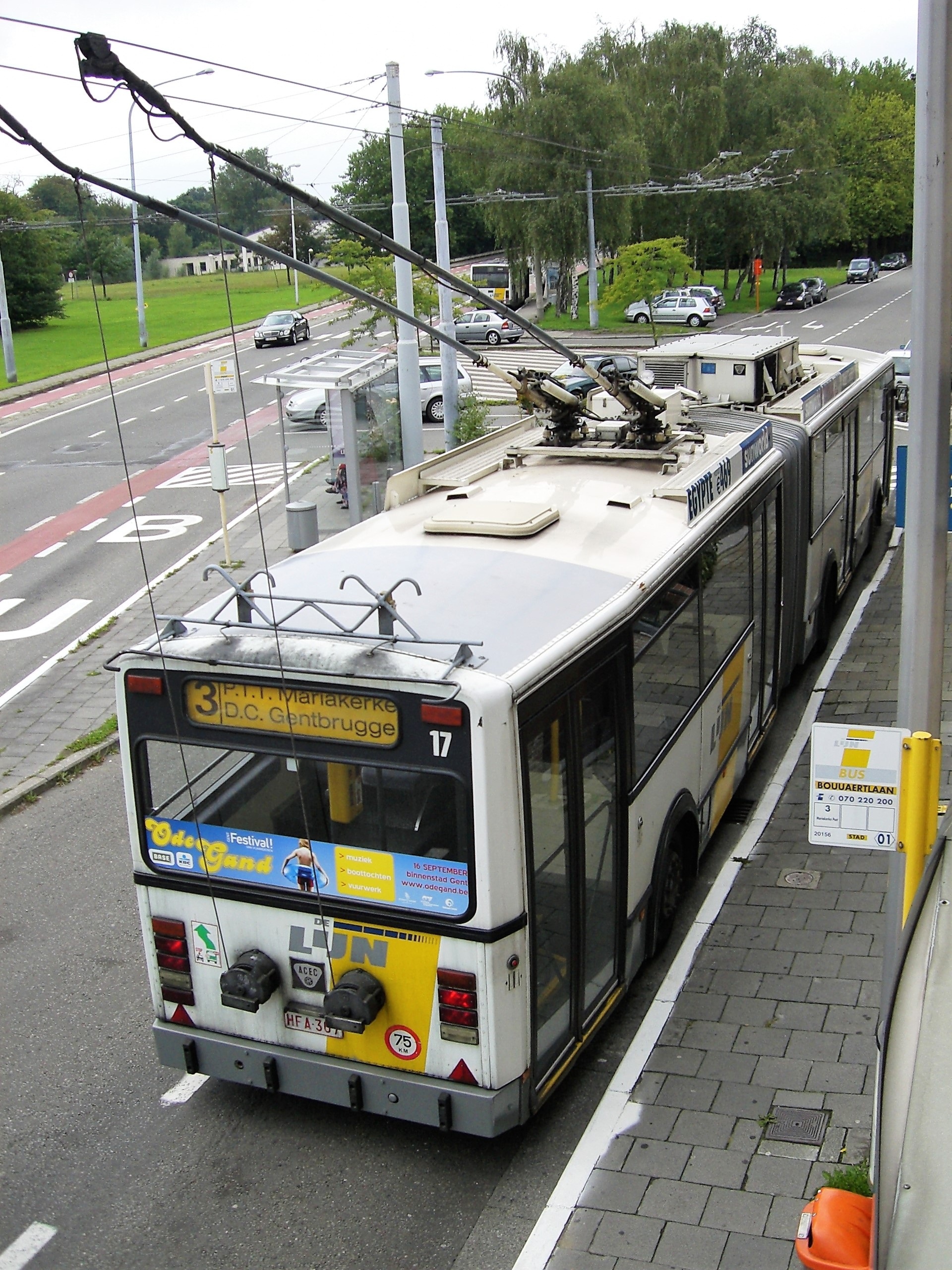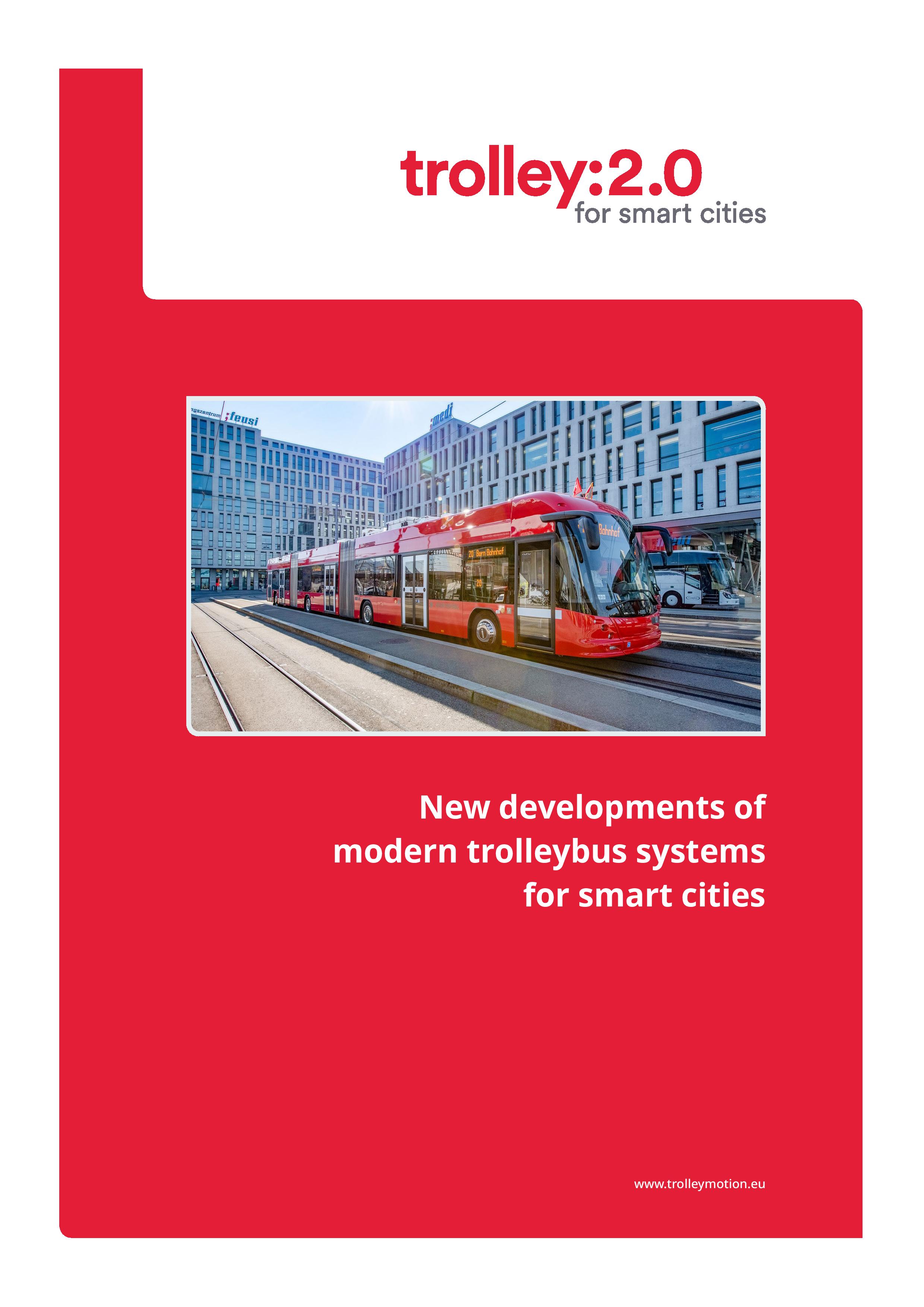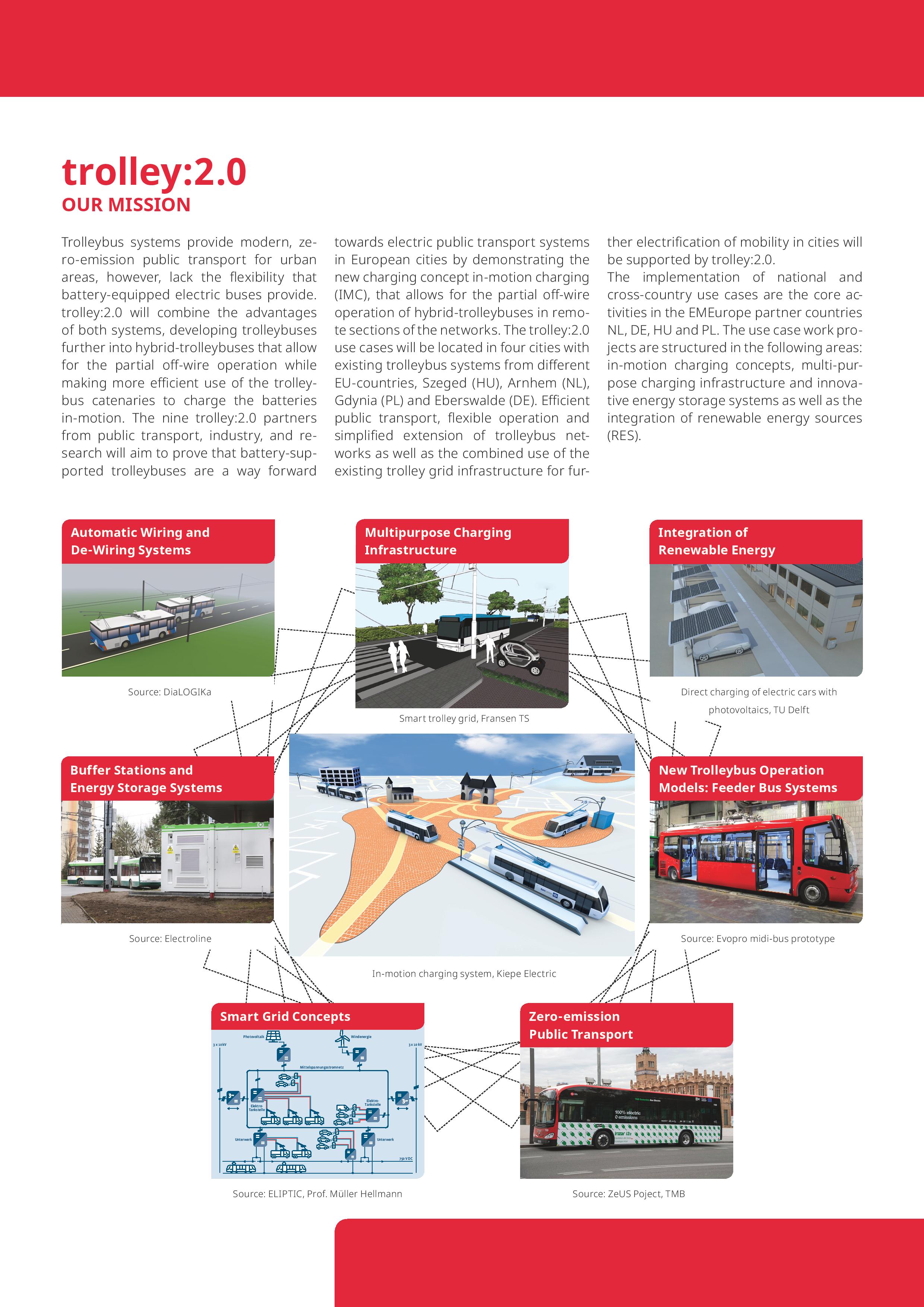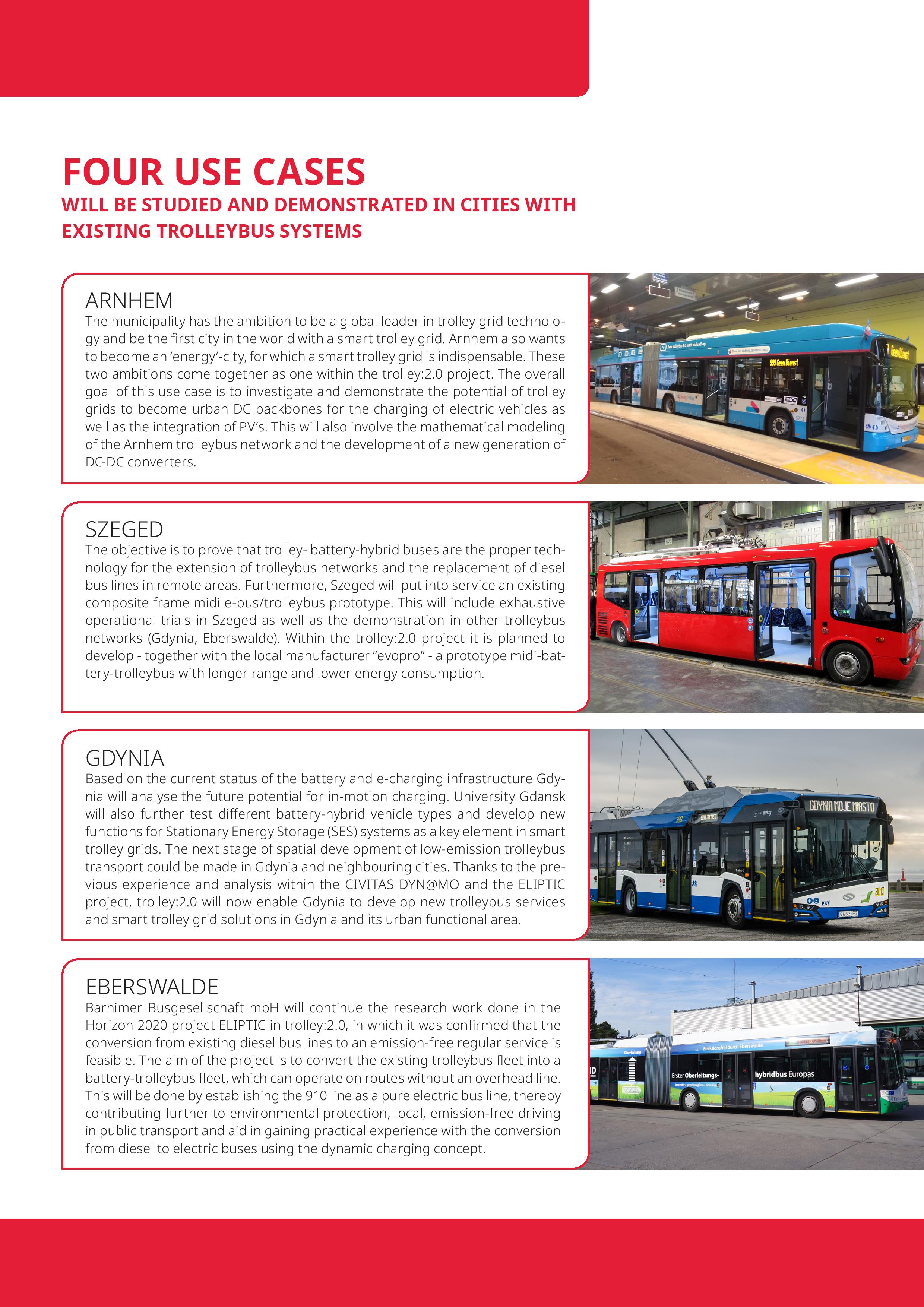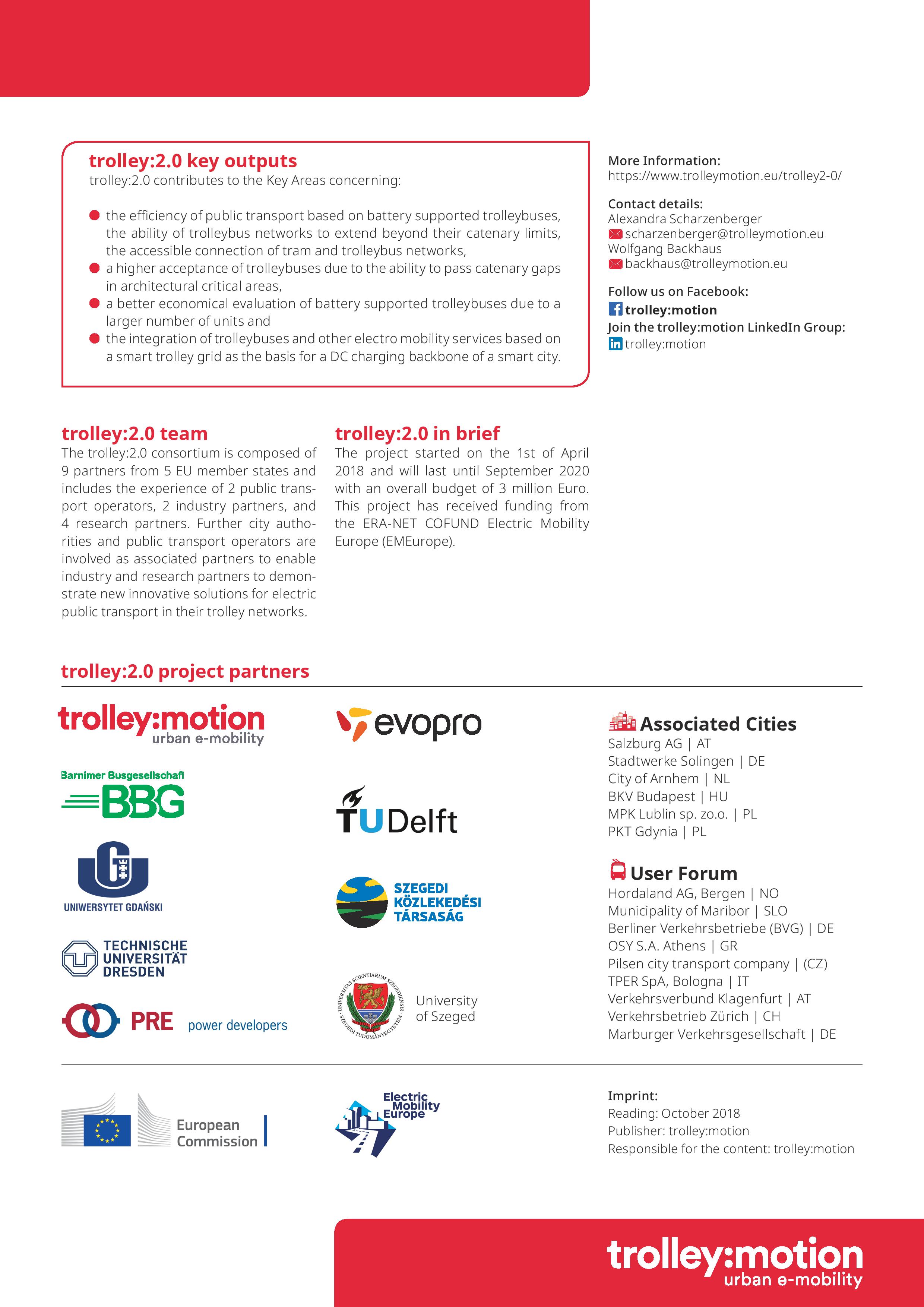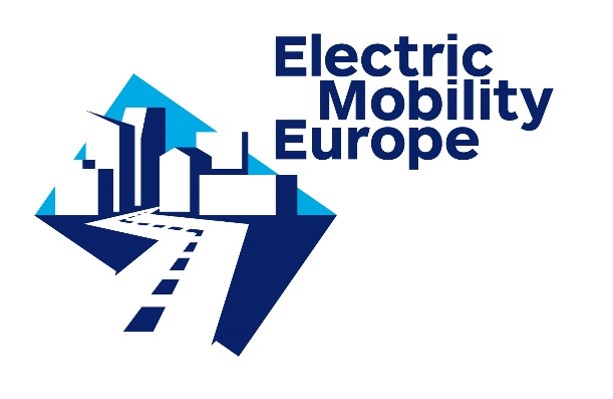Smart Trolley Grid
Project description
Trolley bus systems provide modern zero-emission public transport for urban areas. Although the infrastructure costs are relatively higher as compared to standard diesel bus lines, trolley buses give better performance than diesel buses under certain conditions like for high capacity public transport economically as well as in terms of environmental aspects. Hence, the next step is to integrate battery systems into the trolley buses to achieve partial independence from the catenary, providing more economical performance. Since batteries need to be recharged, carry a large amount of energy and also fast charging is not proven to be the proper recharging method under the given conditions, it is worth to explore the characteristics and performance of battery supported trolley buses and in-motion charging concepts. They are capable of recharging the battery while operating under the catenary as well as to pass catenary gaps in the inner cities. In-motion charging has several advantages over fast charging as it may result in a larger amount of energy transferred to the battery and in a longer battery life due to the lower charging current. Also, charging the batteries in motion eliminates charging stops and related waiting times leading to gain in productivity. The main objective of Trolley 2.0 project is to prove that the battery supported trolley buses are a way forward towards electric public transport systems in European cities. So, 9 partners consisting of public transports, industries and research universities will demonstrate the new charging approach in-motion charging, which will allow off-wire operation in remote sections of the networks in four EMEurope partner countries’ cities. These demonstrations will be evaluated and new innovations for smart trolley grids e.g. new composite bus frames, automated wiring technology or multipurpose charging stations will be demonstrated based on existing DC infrastructure from trolley networks.
Trolley 2.0 will develop tools, guidelines and recommendations for the design and operation of battery supported trolley bus services under different context conditions as well as for the development of smart trolley grids, hence becoming a charging backbone for new electro mobility services in cities.
